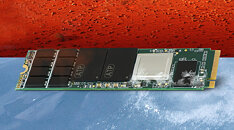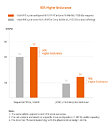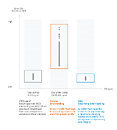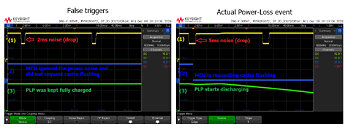- Joined
- May 21, 2024
- Messages
- 1,122 (3.54/day)
ATP Electronics, a global leader in specialized storage and memory solutions, proudly announces the launch of the N751Pi PCIe Gen 4 NVMe M.2 2280 SSDs, which set a new industry standard with unmatched endurance among industrial solid state drives (SSDs) configured with pseudo single-level cell (pSLC) NAND.
The groundbreaking 150K P/E cycling configuration of NAND was achieved, thanks to a combination of ATP's exceptional strengths — from the use of prime NAND package, stringent NAND integrated circuits (IC) characterization and 100% NAND screening and validation capabilities, to ATP's own-developed firmware, specialized hardware configurations, and technologies.




Thanks to their exceptional endurance and ability to operate in extreme temperatures, the N751Pi SSDs are ideal for mission-critical and write-intensive applications in harsh environments, rugged conditions, and intense workloads.
Highest-Endurance Industrial SSD in the Market
Unmatched Endurance
Superior Data Retention
Thermally Engineered for Robust 125°C Cross-Temperature Operating Range
From IC selection/screening to firmware optimization and hardware configuration, our SSDs are thermally engineered at every level:
Industrial-Grade Prime Die:
Rigorous NAND IC screening ensures top-quality components for extreme conditions
Advanced Firmware Configuration



Hardware-Based Power Loss Protection with MCU and PLP Circuitry
ATP adoption of microcontroller units (MCUs) in SSDs enhance reliability, performance, and adaptability by enabling advanced power management, data integrity protection, and real-time optimization of drive operations.
Enhanced TLC Configuration Offering: N651Si/N651Sc
The N651Si/N651Sc Series provides an excellent middle ground for applications that require better-than-average TLC performance and endurance, but do not necessarily need the extreme endurance of pSLC.
This version outperforms other TLC offerings on the market and includes all the advanced features of the N751Pi Series, with capacities ranging from 240 GB to 3.84 TB.
View at TechPowerUp Main Site | Source
The groundbreaking 150K P/E cycling configuration of NAND was achieved, thanks to a combination of ATP's exceptional strengths — from the use of prime NAND package, stringent NAND integrated circuits (IC) characterization and 100% NAND screening and validation capabilities, to ATP's own-developed firmware, specialized hardware configurations, and technologies.




Thanks to their exceptional endurance and ability to operate in extreme temperatures, the N751Pi SSDs are ideal for mission-critical and write-intensive applications in harsh environments, rugged conditions, and intense workloads.
Highest-Endurance Industrial SSD in the Market
Unmatched Endurance
- The N751Pi SSD comes with a standard high endurance rating of 100K P/E cycles but can be further configured upon request to achieve an unparalleled endurance of 150K P/E cycles — a 50% increase. This enhancement translates to an impressive 75 Drive Writes Per Day (DWPD) for sequential write workloads and 21 DWPD for JESD219A enterprise workloads, all supported by a robust 5-year warranty.
Superior Data Retention
- With 100% P/E cycles, the N751Pi SSD can store data for up to a year at 55°C, outperforming other storage devices with similar P/E cycles. This superior data retention capability makes the N751Pi SSD an ideal choice for applications requiring long-term data preservation under challenging environmental conditions.
Thermally Engineered for Robust 125°C Cross-Temperature Operating Range
From IC selection/screening to firmware optimization and hardware configuration, our SSDs are thermally engineered at every level:
Industrial-Grade Prime Die:
Rigorous NAND IC screening ensures top-quality components for extreme conditions
Advanced Firmware Configuration
- Thermal Throttling: The SSD intelligently adjusts its workload to maintain maximum sustained performance and throughput while preventing overheating. This dynamic approach optimizes performance within safe temperature ranges.
- Cross-Temperature Error Handling: ATP has developed technology to mitigate errors that can occur when SSDs operate across varying temperatures. This is particularly important for scenarios where data is written at low temperatures (-40°C) but read at high temperatures (85°C), which can increase error rates and potentially compromise data integrity over time. ATP's solution helps maintain data integrity even as the NAND approaches the end of its operational life.
- For better performance in harsh environments, ATP offers customizable heatsink options based on customer requests or joint validation results. Available options include 4 mm, 8 mm, and copper foil heatsinks.



Hardware-Based Power Loss Protection with MCU and PLP Circuitry
ATP adoption of microcontroller units (MCUs) in SSDs enhance reliability, performance, and adaptability by enabling advanced power management, data integrity protection, and real-time optimization of drive operations.
Enhanced TLC Configuration Offering: N651Si/N651Sc
The N651Si/N651Sc Series provides an excellent middle ground for applications that require better-than-average TLC performance and endurance, but do not necessarily need the extreme endurance of pSLC.
This version outperforms other TLC offerings on the market and includes all the advanced features of the N751Pi Series, with capacities ranging from 240 GB to 3.84 TB.
View at TechPowerUp Main Site | Source




